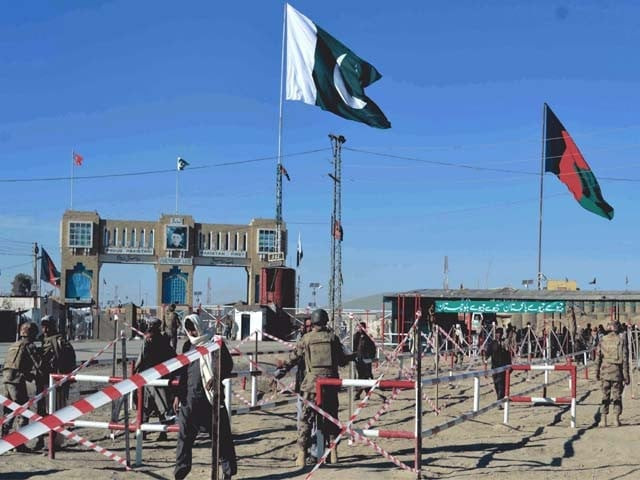Doha offers Kabul, Islamabad mediation
Shehbaz open to talks if Afghans serious, Pakistan warns patience wearing thin, Accuses India of trying to escalate

Senior officials from Pakistan and the Taliban regime are expected to meet in Doha to find a solution to the banned TTP and other terror groups operating from Afghanistan, as Prime Minister Shehbaz Sharif on Thursday said Pakistan was ready to talk to Kabul provided it showed seriousness to address the country's legitimate security concerns.
As the truce holds, the prime minister told his cabinet colleagues that despite repeated efforts to convince Kabul to take action against terror networks operating from Afghan soil, "terrorists continue to enjoy a free hand in Afghanistan".
The prime minister warned that Pakistan's patience ran out after a series of deadly cross-border terrorist attacks that left several Pakistani soldiers and civilians martyred.
"These terrorists have killed our citizens, Pakistan Army soldiers and officers, police personnel, and members of other law enforcement agencies. After recent incidents, our patience has reached its limit," the prime minister said.
He added that Pakistan had sent a clear message to the Taliban regime in Kabul on Wednesday night at the start of the 48-hour ceasefire that Islamabad was ready to engage if the Afghan side was serious about resolving the matter through dialogue.
"If the Afghan Taliban [regime] wish to discuss and settle the issues on our legitimate terms during the ceasefire, we are ready for that," he said.
"Now it depends on them whether they are serious about their own request for a ceasefire and want to resolve the matter through talks," Shehbaz added.
Pakistan and the Afghan Taliban regime on Wednesday agreed to a temporary ceasefire along the border, following days of deadly and intense clashes in multiple locations that left dozens dead on both sides.
According to a statement issued by the Ministry of Foreign Affairs, the 48-hour ceasefire came into effect at 6 PM Tuesday. The truce, the ministry said, was reached at the request of the Afghan Taliban and with mutual consent.
"During this period, both sides will make sincere efforts to find a positive resolution to this complex but solvable issue through constructive dialogue," the statement added.
The prime minister lamented that despite Islamabad's consistent efforts, no meaningful progress had been achieved.
He also alleged that the recent attacks were carried out "at India's behest", noting that Afghanistan's foreign minister was in India when the cross-border assault took place. "We were left with no option but to respond."
Meanwhile, diplomatic efforts to defuse tensions are also underway. Qatar has offered to mediate between Pakistan and the Afghan Taliban regime to help de-escalate the situation. "Qatar has expressed its willingness to play a constructive role in bringing both sides to dialogue," Shehbaz said.
In a related development, Deputy Prime Minister Ishaq Dar received a message from Qatar's Minister of State for Foreign Affairs, Dr. Abdulaziz Al-Khulaifi, who appreciated Pakistan's constructive role in promoting regional peace and stability. Dar, in turn, thanked Qatar for its continued support and efforts to foster peace across the region.
The Torkham and Chaman border crossings between Pakistan and Afghanistan remain closed following days of intense clashes that have raised fears of a broader escalation unless both sides step back and engage through diplomatic channels.
It all started when Pakistan reportedly conducted strikes in Kabul last week, targeting the banned TTP chief. Islamabad neither confirmed nor denied the strikes, although Kabul blamed Pakistan.
Following the Kabul strikes, Afghan forces two days later mounted attacks on multiple Pakistan army posts from Chitral to Balochistan. That invoked a strong response from the Pakistan military, which not only used heavy weapons but also air power to pound terrorist hideouts and other facilities.
There was a lull in fighting for three days but deadly clashes erupted again on October 14 when the Afghan force once again first initiated firing in Kurram. Pakistan military again responded with precision strikes in Kabul as well as Kandar, the spiritual capital of Afghanistan.
That, according to sources, rattled the Taliban regime, which rushed to Saudi Arabia and Qatar, seeking their good offices for a ceasefire. Pakistan agreed to the truce on the conditions that the Taliban regime would address its security concerns failing to do so would lead to the resumption of strikes inside Afghanistan, according to sources.




















COMMENTS
Comments are moderated and generally will be posted if they are on-topic and not abusive.
For more information, please see our Comments FAQ